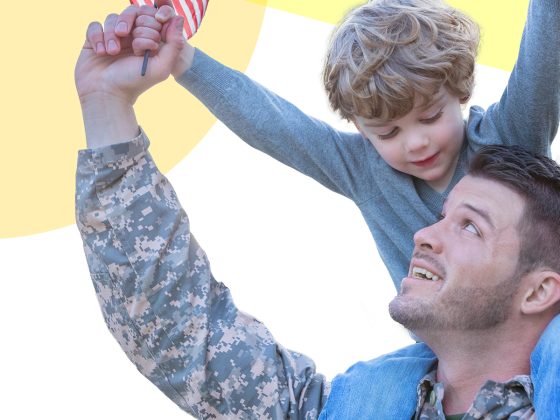
Teaching Your Children to Be Upstanders
Ways military families can be upstanders.
By Tiffany Eve Lawrence
Children need to learn how to make choices that reflect anti-racism by purposefully being inclusive, empathetic, and aware. And empathy is a great place to start.
Many military children live a changing lifestyle. They are in a constant rotation of learning a new community and possibly being put in the middle of a different culture. Since 80% of military children attend public schools, they also have the challenge of adjusting to a new structured environment while trying to make friends. So they stick out. And if they are BIPOC, the isolation can be amplified.
But your children can speak up when they notice racism in action by starting with empathy. DoDEA offers military parents resources like The Compassion Project, which teaches children how to think and act compassionately. Their equation for accomplishing this is Empathy + Action = Compassion.
Here’s an example of an empathy boosting conversation:
“Remember when you were new in your class, and you didn’t know anyone? Did it feel a little lonely? New students who come in after you feel the same way. But if you tell them your name and ask them to sit with you, they won’t be lonely. You can ask where their family came from and what they like to do.”
As an upstander, your child will speak up to support someone else, and most children love to be helpful. Showing them how they can do this will impart a sense of purpose, and role-playing is a great tool!
Ask them if they know of a time a child was treated unfairly because of their race, ethnicity, or culture. Let your child know they have a chance to help this person feel they are not alone. And they can practice language for doing that:
“Don’t treat them that way. It hurts our feelings.”
“Will you come to play with me? We can be friends.”
They can even point out the behavior to their caretaker (“Someone is being mean to _____ because they are different, and it’s not fair. Can you stop them?”)
Children learn by doing, so by setting up a simple role play, you can be sure that they understand what it means to be an upstander. They not only know what to look for, they know how to address it.
Tiffany Eve Lawrence is a journalist who’s been writing professionally for several years. She has a unique way of unpacking topics that can be uncomfortable, ranging from parenting to mental health and social issues. Her ties to the military as a Marine Corps spouse put her in the center of sharing stories of how those who serve are impacted. Tiffany’s journalism and essays can be found online and in print in various publications, including Parents, Glamour, Romper, Courier Newsroom, Military Families Magazine, and more.
To find more of her work visit: www.bytiffanyeve.com
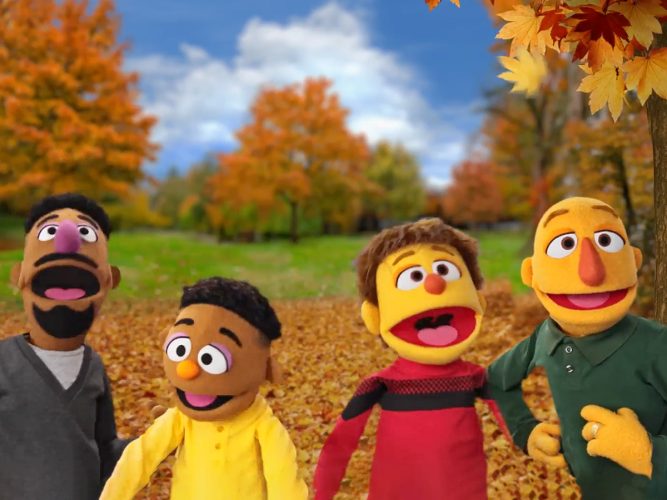
The Wiggle-Jiggle Game
A video about a getting-to-know-you game that helps kids appreciate similarities and differences.
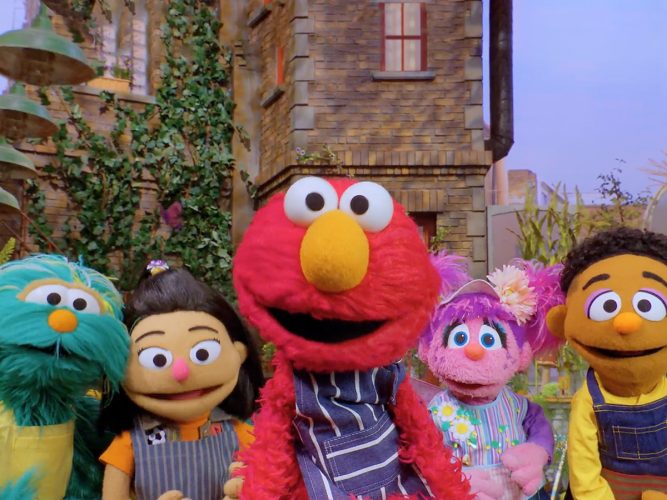
Community Song
A video about community.
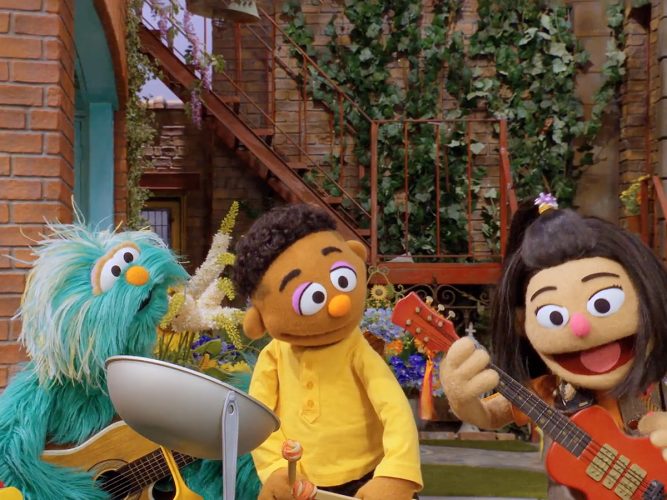
Musical Show & Share
A video about coming together to create something beautiful.
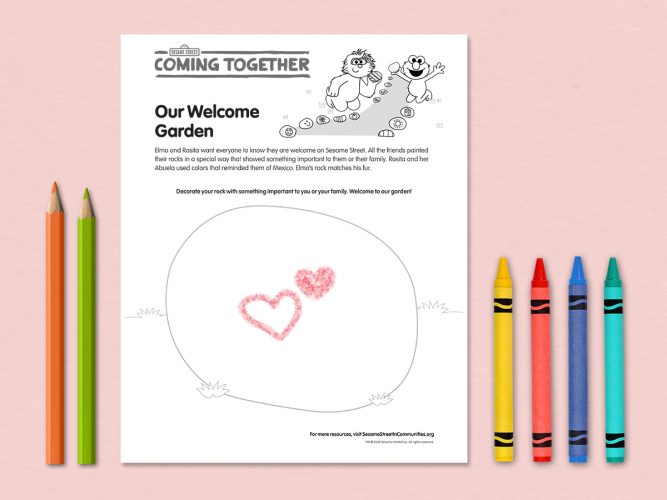
Our Welcome Garden
A printable page about a community rock garden.
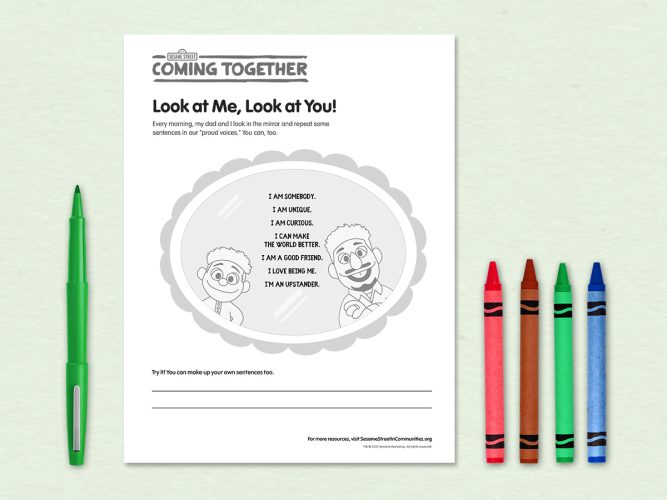
Look at Me, Look at You!
A printable page with parent-child affirmations.
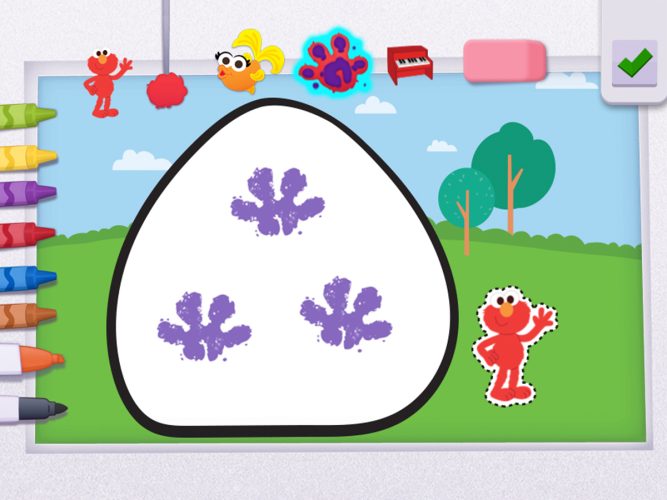
Welcome to Our Garden
An interactive game in which children add rocks to the Sesame Street community garden.
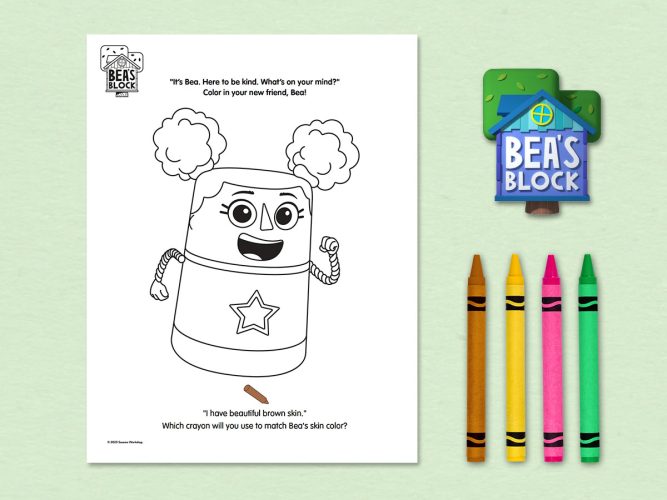
Bea’s Block Kindness Adventure Color & Activity Guide
Activities and coloring pages for children that celebrate kindness.
